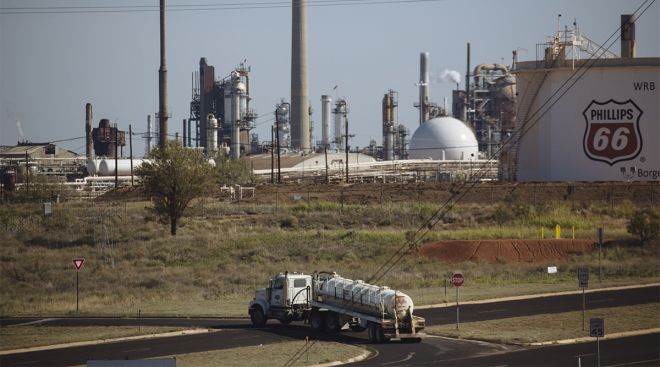Minnesota ‘Clean Cars’ Rules Get OK to Move Forward
The administration of Minnesota Gov. Tim Walz and state regulators can adopt new vehicle emission standards without the OK from lawmakers, an administrative law judge ruled May 7.
Tesla Accused by EPA of Auto-Coating Emissions Reporting Failure
The U.S. Environmental Protection Agency accused Tesla Inc. this month of failing to prove it is complying with hazardous air-pollutant rules related to the surface coatings of its electric cars.
Biden Pledges 52% Cut in Fossil Fuel Emissions by 2030
President Joe Biden convened leaders of the world’s most powerful countries on April 22 to try to spur global efforts against climate change.
Daimler’s Legal Risks Around Emissions Linger Ahead of Revamp
Daimler AG shares have soared since the pandemic forced the Mercedes-Benz maker to postpone its annual shareholders’ meeting around this time a year ago. Its chairman’s swan song still will hit some low notes.
EPA Steps Up Efforts to Catch Emissions Tampering
The U.S. Environmental Protection Agency is in its second year of a four-year enforcement effort to catch truckers who are installing emissions defeat devices or otherwise tampering with emissions systems.
Biden Unveils Sweeping Climate Plan, Moves to Rejoin Paris Pact
President Joe Biden signed sweeping actions to combat climate change hours after taking the oath of office, moving to rejoin the Paris accord and imposing a moratorium on oil leasing in the Arctic National Wildlife Refuge.
Spending on Global Energy Transition Hits Record $500 Billion
The world spent a record $501.3 billion in 2020 on renewable power, electric vehicles and other technologies to cut the global energy system’s dependence on fossil fuels.
For First Time in Five Years, US Gas Mileage Down, Emissions Up
A new government report says gas mileage for new vehicles dropped and pollution increased in model year 2019 for the first time in five years.
Exxon Reveals Petroleum Product Emissions Data for First Time
Exxon Mobil Corp. released emissions data on customers’ use of its petroleum products for the first time after coming under pressure from investors.
Getting US to Zero Carbon May Cost $2.5 Trillion by 2030
It’s going to take $2.5 trillion in spending over the next decade to get the U.S. on a path to a carbon-free economy, but the transition will help to pay for itself, Princeton University researchers say.
December 15, 2020










